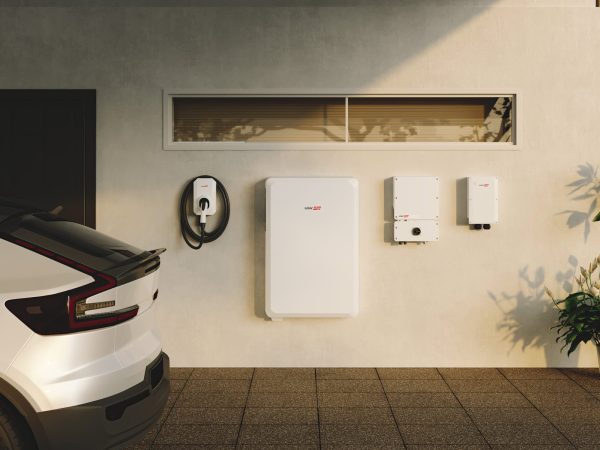
In recent years (and especially over the last few months), the interest in solar batteries has seen a huge rise in Australia. But if you’re thinking of switching to solar, you probably have a lot of questions. One of the most common is: How many solar batteries do I need to power my house? In this guide, we’ll walk you through the key factors to consider when figuring out the right number of batteries for your home.
Factors That Influence Battery Storage Size
The amount of solar batteries your household needs depends on several factors, including:
What’s Your Motive for Installing a Battery?
How much battery storage you get largely depends on what you want your solar battery to do. Most people install a home battery to save money, have backup power or reduce their reliance on the grid.
To Reduce Electricity Bills
If your main motivation for installing a battery is to save money on electricity, a single battery is an economical choice. You will need enough energy storage to keep your home self-sufficient during peak electricity usage times. You may also be able to take advantage of the current WA Solar Battery Rebate, which will help lower the cost of a new battery installation.
To Provide Backup Power
A battery can also be a great source of backup power during an outage. They’re a reliable way to keep your essential appliances running through extreme weather or grid failures. If you’re only looking to provide backup power to a few essential systems, one or two batteries will do the trick.
To Go Off Grid
While even one or two batteries can help you save, you’ll likely still need to buy some electricity from the grid. If your goal is to be more energy independent, you might consider getting three or four batteries. To go completely off-grid, you’ll need around eight to twelve batteries (and possibly more).
Household Energy Consumption
Calculating your home’s energy usage will help you accurately find out how many solar batteries you need. This can be found on your electricity bill. The average household in Western Australia uses around 18-20kWh per day. Some larger homes and those with a pool use anywhere from 30kWh to 60kWh per day.
For an effective home battery, aim for a storage capacity of at least 25% of your daily electricity usage. You should also add an extra 2kWh to this figure as a buffer to make sure you have some backup power. If you want to cover your full nighttime energy usage, you’ll want to need battery storage for around 60-70% of your daily energy usage, plus the 2kWh for backup.
For example, if your household uses 25kWh a day, you’ll want at least an 8.25kWh battery. While this probably won’t last you all night, it should cover you for the more expensive peak hours. To cover your nighttime usage, you’ll want at least 17kWh of storage.
Solar Panel System Size
The size and efficiency of your solar panels impact how much energy can be stored. If your panels generate more energy than your batteries can store, excess energy will be fed back to the grid. However, if your system’s output is less than what your batteries can hold, they won’t fully charge and will be underutilised. A good rule of thumb is to have at least one battery for every 10kW of solar panels.
Battery Capacity
The size of the battery affects how many you’ll need. A higher-capacity battery means fewer units, while a smaller-capacity one requires more. Most residential batteries range from 9 to 15kWh. Some batteries feature a modular design, which means you can easily add more units to expand the system up to hundreds of kilowatt hours.
Calculate How Many Solar Batteries You Need
To calculate a rough estimate of how many solar batteries you need to power your home, you’ll first need to find out three key things:
- Stored Energy Time (hours): The number of hours per day you plan on using the stored energy from your batteries
- Total Energy Consumption (kW): This is the total power of all the appliances and systems you want to run during your stored energy hours
- Battery’s Depth of Discharge (DoD): Batteries should not be fully discharged to prolong their lifespan. The depth of discharge is the percentage of the battery’s total capacity that you can use.
Total Battery Storage Capacity (kWh) = (Total Energy Consumption (kW) × Stored Energy Time (hours)) / Depth of Discharge
For example, let’s say your appliances consume 1000 watts of electricity (1 kilowatt) and you want to power them for 10 hours at night:
1 kilowatt × 10 hours per day = 10kWh per day
10 kWh / 0.8 (80% DoD as a decimal) = 12.5 kWh
You will need approximately 12.5 kWh of usable stored electricity to meet your energy needs.
You would need approximately 17 solar panels to meet your energy needs.
Remember, this is just a rough estimate. You should consult a qualified solar installer for a more accurate figure.
Consulting a Solar Specialist
Determining how many solar battery sizes your home needs depends on your actual electricity usage, not just estimates or averages. It’s best to consult with a professional solar panel installer to determine the right number of batteries for your home. At Perth Solar Force, our team will design a custom home battery system based on your goals, energy usage and budget.
